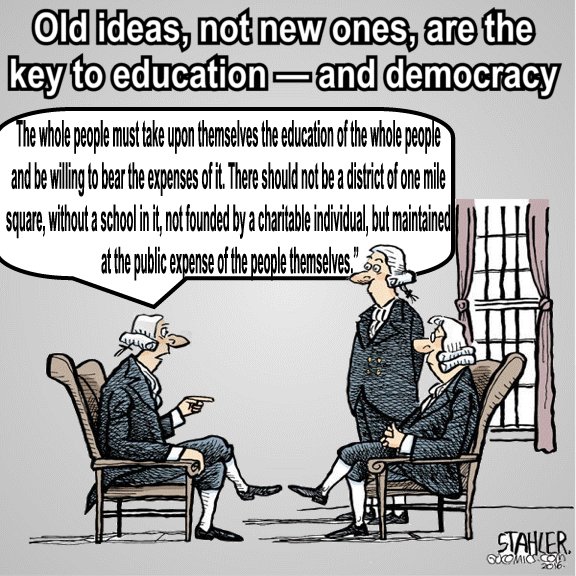Protecting public education requires us to return to the ideals on which our country was founded.
Public education as we know it is in trouble and, with it, so is our democracy. Rather than seeing it as a solution to segregation, inequality, and division, many now claim that the idea of public schooling itself is the problem. “Government schools,” as some pejoratively call them, deny families freedom and ought to be abandoned for the private market.
Fully appreciating the danger of this rhetoric and the policies it is producing requires us to look backward, and beyond schools themselves to the history of the nation’s major democratic and constitutional developments. The nation, in its infancy, built its concept of democracy around public education, and, following the Civil War, public education — alongside the right to vote — became the cornerstone of the recovery of the war-torn nation. For that reason, those who would overthrow democracy have sought to attack public education, particularly during Jim Crow segregation. The lessons found in this history, more than the heated rhetoric of the present day, should inform our current approach to strengthening our schools.
Founding gifts
Two hundred years ago, our founding fathers gave us two gifts, both of which were relatively unknown to the world at the time. The first was democracy — what they called a republican form of government. The second was public education. These gifts were inextricably intertwined.
A republican form of government would allow everyday people to govern themselves through elected representatives. Our founders knew what it was like to live under a king, and they wanted something radically different for themselves, their families, and the generations that would follow. Of course, by denying African Americans, women, and many poor whites the right to vote, the founders failed to live up to their lofty ideals. But those ideals, though flawed in their initial implementation, were compelling enough to take root and bear fruit for generations to come.
The nation, in its infancy, built its concept of democracy around public education.


